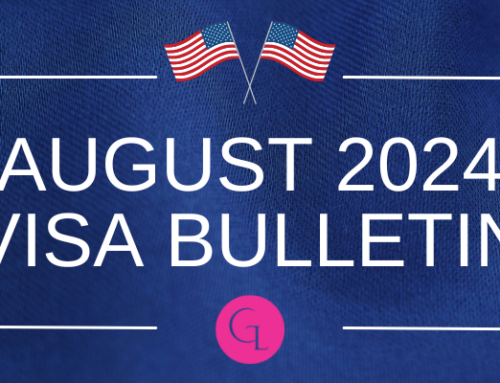On August 19, 2022 the Accrediting Council for Independent Colleges and Schools (ACICS) was no longer recognized as an accrediting agency by the U.S. Department of Education. Such determination affected two types of international student programs. Among them are many English language study programs as they need to be accredited under the Accreditation of English Language Training Program Act and F-1 students applying for the STEM optional practical training (OPT). To be able to apply for the STEM OPT extension, the school must still be accredited at the time of the application.
Students should contact the Designated School Officials (DSO) to understand if their institution has lost accreditation as well as how their status and immigration benefits will be affected.
English Language Study Programs
USCIS will issue requests for evidence (RFEs) to prospective international students who have filed Form I-539, Application to Extend/Change Nonimmigrant Status, requesting a change of status to attend an ACICS-accredited English language study program. When responding to RFE, prospective students will have to provide evidence that the study program they are attempting to enroll in does meet the accreditation requirements. If students do not submit a new Form I-20 from a school that is accredited by an entity recognized by ED, USCIS will proceed to deny the change of status.
The 24-Month STEM OPT Extension Program
USCIS will consider the filing date of the application to be the date that the DSO described the STEP OPT extension in Form I-20. USCIS will issue a denial to any F-1 student filing a Form I- 765 STEM OPT extension if:
- The STEM educational degree was obtained from a college or university that was accredited by ACICS; and
- The student’s DSO recommendation for a STEM OPT extension, indicated on Form I-20, is dated on or after August 19, 2022 (the date when ACICS ceased to be recognized as an accrediting agency).
Students who receive a denial from USCIS will have to depart the United States in less than 60 days. Otherwise, they would have to transfer to a different school or begin a new course of study at an accredited, SEVP-certified school.
If a student received a DSO recommendation on Form I-20 before August 19, 2022, the student is not affected.
H-1B Master’s Cap and H-1B Cap Exempt Institutions
Lastly, the loss of recognition of ACICS as an accrediting agency has more impact on international students that graduated in the US. As colleges and universities that were solely accredited by ACICS are no longer considered accredited institutions. Any degrees provided by entities that were accredited by ACICS on or after August 19, 2022, will not qualify as U.S. degrees or for the H-1B advanced degree exception (master’s cap). The loss of recognition also will affect I-140 petitions filed under the advanced degree and professional classification, unless the degree was conferred before August 19, 2022.
The loss of recognition also affects institutions that were under ACICS accreditation and qualified for an H-1B Cap or exemption by being an institution of higher education. Those institutions that are no longer recognized by a qualified accreditation agency, or otherwise recognized as pre-accredited, would no longer qualify for the H-1B cap exemption unless they are exempt on another basis.
About the Author

Mercedes Benites
Mercedes Benites is a Legislative Assistant for the Georgia State Senate. She also assists Garvish Immigration with weekly and monthly marketing projects.






